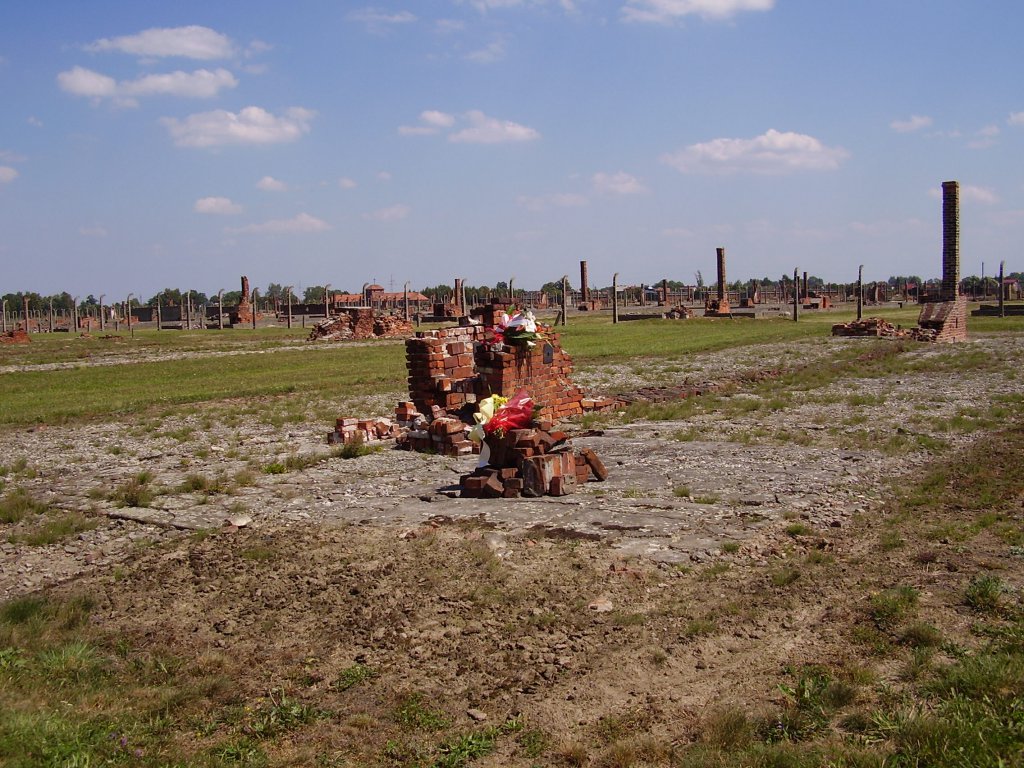A Song for the Roma Genocide
02 August 2016
|
Gelem, gelem, lungone dromensa Maladilem bakhtale Romensa A Romale, A Chavale Sas vi man yekh bari familiya,Mundardyas la e Kali Legiya Aven mansa sa lumnyake Roma, Kai putardile e Romane droma Ake vriama, usti Rom akana, Amen khutasa misto kai kerasa |
I went, I went, on long roads There I met happy Roma O Roma, O Romani children Once I had a great family, |
"Gelem, Gelem" is a song composed by Žarko Jovanović, a Romani activist and survivor of the Romani genocide. He left behind a song which was embraced as the Romani anthem in 1971 by the first World Romani Congress, a song that is emblematic of our struggle. The song speaks about the journey of the Roma, about the sorrow that remained with us after 1945. The lyrics primarily speak of the Roma genocide, known as Pharrajimos (destruction) in Romani language. The song remembers the 23 000 Roma and Sinti who died in Auschwitz. The pain of the sterilized and tortured Romani men and women. The gruesome medical experiments on Romani children. And of course, the raw, cultural memory of the gas chambers, so ingrained in the imaginations of Roma worldwide. Jovanović’s anthem whilst referring to Auschwitz, is also a lament for the other camps in which over 500,000 Roma lost their lives. In Europe there existed some 1200 death camps, but Gelem Gelem also commemorates the countless unnamed byways, woods, roads, villages and fields which were visited by horror and death over the long years of the Romani genocide.
 Today, on the 2nd of August, we remember a song that brings us together, a song that represents a culmination of the Romani struggle. For a time we are together in sorrow and commemoration of the loss of so many innocent Romani lives. It is an oft repeated trope that those who forget the past are condemned to repeat it, but do we, as Europeans, still remember? What do we do to commemorate and learn from the Roma genocide? Why do we need a special day of mourning, separate to Holocaust Memorial Day? Can we, as Roma, afford to be ignorant of our past and live, as many of us do, so closely tied to the every-day, to the present? These are questions which have often plagued me personally, and are also concerns for many other young Roma.
Today, on the 2nd of August, we remember a song that brings us together, a song that represents a culmination of the Romani struggle. For a time we are together in sorrow and commemoration of the loss of so many innocent Romani lives. It is an oft repeated trope that those who forget the past are condemned to repeat it, but do we, as Europeans, still remember? What do we do to commemorate and learn from the Roma genocide? Why do we need a special day of mourning, separate to Holocaust Memorial Day? Can we, as Roma, afford to be ignorant of our past and live, as many of us do, so closely tied to the every-day, to the present? These are questions which have often plagued me personally, and are also concerns for many other young Roma.
Whilst European institutions are beginning to acknowledge the Romani genocide on a much wider scale, the degree of ignorance displayed by large sections of the general public is staggering. As tensions rise across the continent, it seems people are forgetting what the price of hatred is, with some running to embrace these age old hatreds of the European ‘other’ once again. The anti-Roma, anti-refugee and anti-Semitic political discourses of the early 20th Century are poisoning public thought once more in Europe. Those who peddle hatred to a disenfranchised majority are gaining more and more power. In numerous countries in Europe, the far-right is playing the anti-Roma card for cheap political gain, with potentially disastrous consequences. It is the height of folly to believe that this political demonizing and dehumanizing of Roma exists in a vacuum independent of public consciousness in Europe at the moment. Anti-Roma sentiments in society exist co-dependently with racist political rhetoric, which of course leads to an increase in hate-speech and hate crimes targeting Romani individuals. Hearing politicians at a national level in Bulgaria and Hungary reusing racial slurs from the fascist era to describe Roma, and the angry masses echoing and amplifying these discourses, recalling Nazi rhetoric for racial superiority, demonstrates to me that I do not have the luxury of insulating myself from the proximity of the Romani Genocide. We have to not only remember our past, but also personally connect with it, and remind others of the price a lack of humanity bore within a single lifetime ago. We need to not only shout out “Never again”, but convince others of the importance of this phrase.
Romani people are still here. We still struggle. And we still survive. We remain bakhtale, we still keep an indomitable optimism in our hearts, despite the tremendous challenges we often face in society. We remain peaceful, despite the hatred, negative sentiments and exclusion we meet.
Today is a day to forget petty differences amongst civil actors, academics and Romani activists. Today is a day to celebrate the diversity of Romani cultures and celebrate this strength rather than highlight it to breed divisions.
On this Roma Genocide Remembrance Day, we still need an anthem to keep us going. A song to remember the past, but also to promote the better future we strive for. Perhaps, now we now need to interpret the idyllic happy Roma travelling on long roads as a beacon of hope, unity and good spirit which we can all work towards, and which so often has embodied the soul of Romani cultures across the world.




